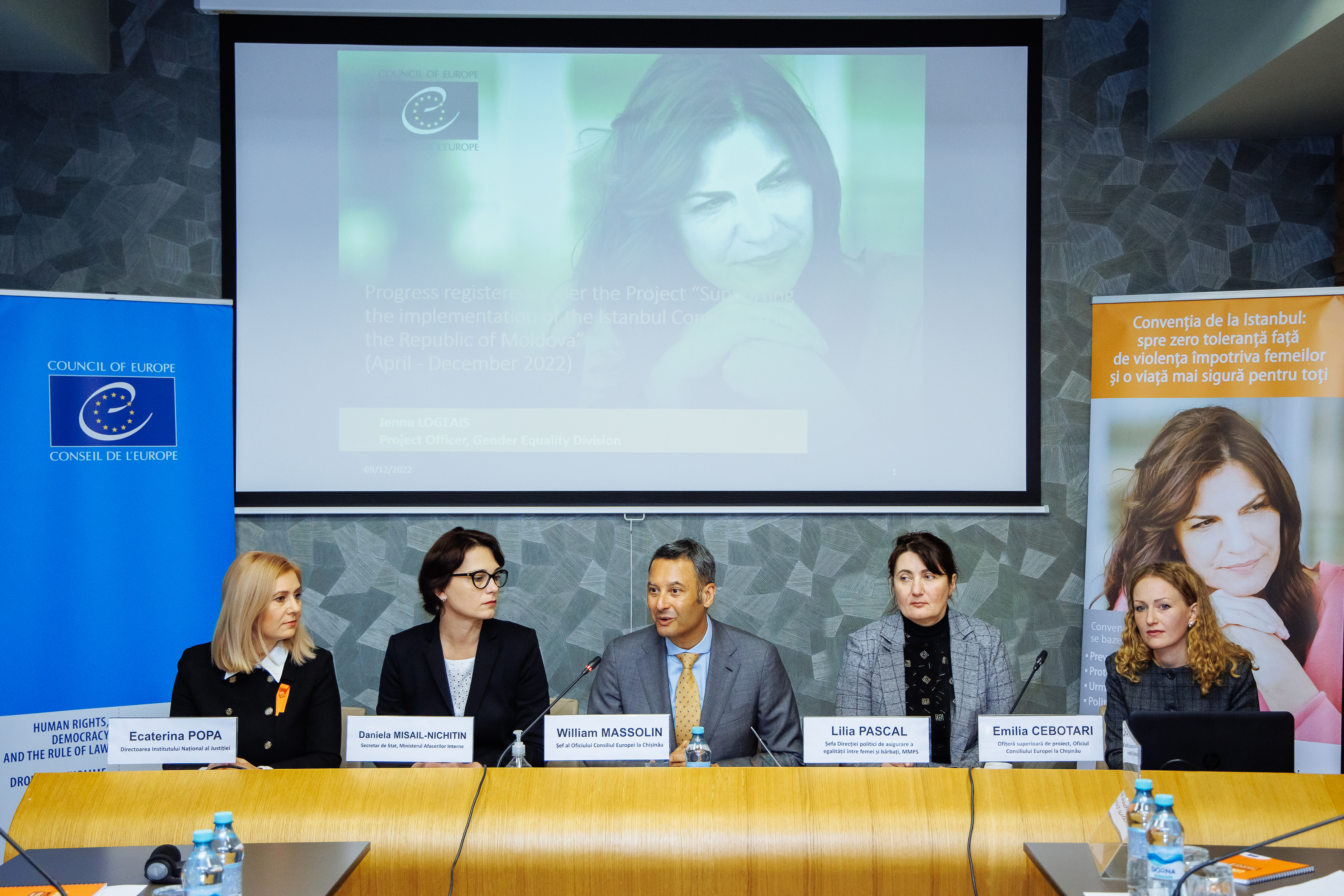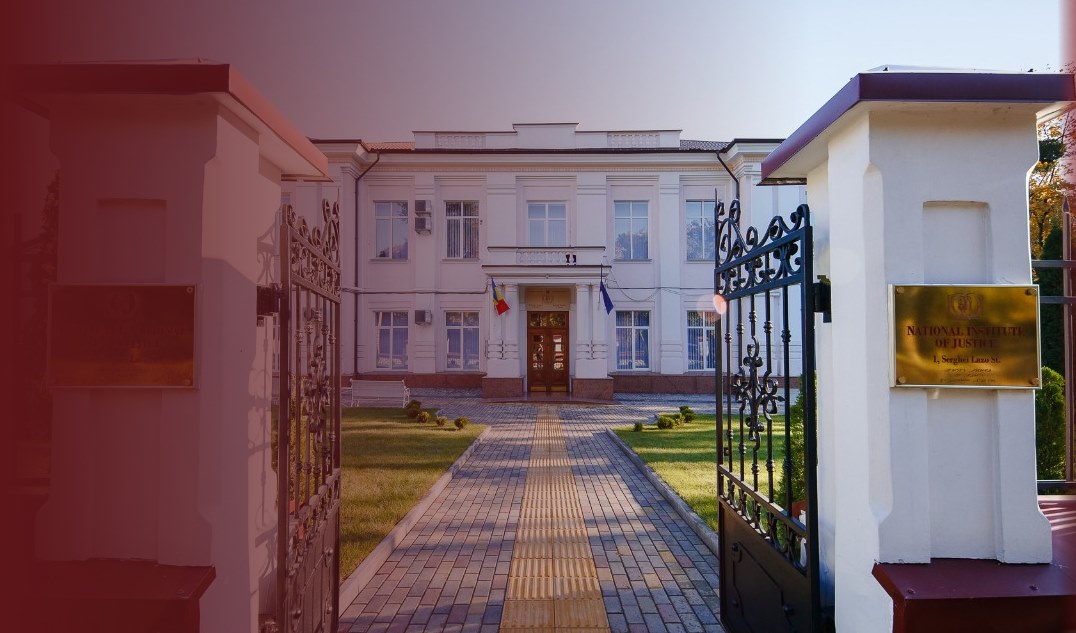
On Friday, December 9, 2022, representatives of the National Institute of Justice, Ecaterina Popa, ad interim director, and Tatiana Ciaglic, head of the legal information Center, participated in the mid-term meeting of the CoE Project Steering Committee “Supporting the implementation of the Istanbul Convention in the Republic of Moldova”.
The event aimed to discuss the general institutional, political and legislative developments in the field of violence against women and domestic violence during this year, as well as the challenges and priorities for the next period. The results of the project were also presented and the work Plan for next year was approved.
In her speech, Ecaterina Popa emphasized the importance that the Institute grants to strengthening the professional skills of its beneficiaries through the Istanbul Convention and pointed out the results achieved in this segment: National tutoring of the help courses “Violence against women and domestic violence” and “Women’s access to justice”, continuous training activities, the national competition of fine arts “Generation of Equality”, organized by NIJ and the School of Fine Arts “A. Sciusev”, as well as public lessons on information and awareness of the phenomenon of violence, etc.
The project “Supporting the implementation of the Istanbul Convention in the Republic of Moldova” was launched this spring by the Council of Europe, in partnership with the National Institute of Justice, the Ministry of Labor and Social Protection, the Ministry of Internal Affairs, as part of the CoE Action Plan for the Republic of Moldova for 2021-2024. Among the beneficiaries of the project, which aims to strengthen the capacity of key stakeholders involved in both preventing and combating violence against women and domestic violence, as well as in protecting victims and prosecution of offenders, are state authorities, civil society, media, legal professionals, social workers and victims of gender and domestic violence.
